‘The Mission,’ About Young Man Killed In Attempt To Convert Indigenous Islanders, Triggers Passionate Response In Telluride
- Oops!Something went wrong.Please try again later.
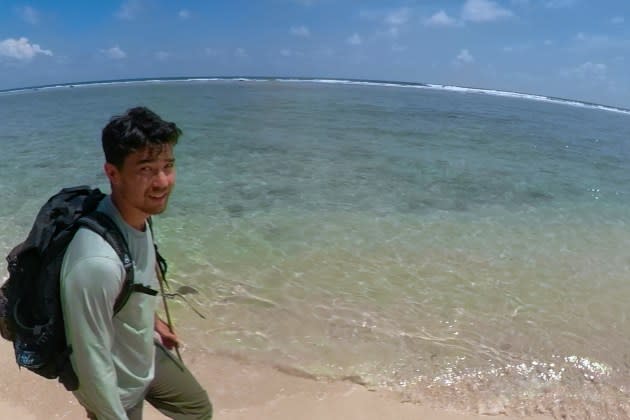
Judging from talk in restaurants and on the Telluride gondola, one of the films provoking the strongest reaction at the festival this year is The Mission. The National Geographic documentary, directed by Amanda McBaine and Jesse Moss, tells the story of missionary John Chau whose shocking demise in 2018 made headlines around the world (and elicited insensitive memes).
The world premiere and subsequent screenings here have triggered debate over the ethics of Christian missionary work, particularly when it involves attempts to convert Indigenous people who have had little or no previous contact with outsiders, as was the case in Chau’s endeavor. He took it upon himself to try to bring the Gospel to the North Sentinelese, a group living on a remote island in the Andaman Sea. After initially being repelled by a warning shot from an arrow, Chau returned the next day and was felled on the beach. His body was never recovered.
More from Deadline
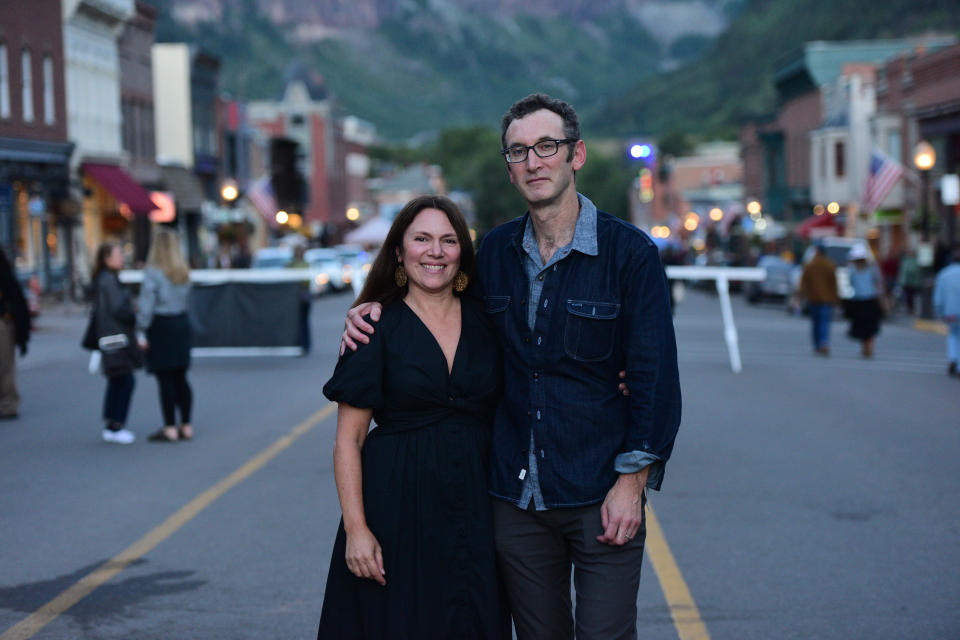
“This wasn’t an impulsive act, it was a very considered methodical act. And John himself was a smart, really kind of likable young man,” Moss told Deadline shortly before Telluride. “The exact circumstances of his death are not known, but he did die on the island and yet he had dreams of living there, of spending his life there, of preaching to these people. Because so little is known about the [North Sentinelese] tribe and the circumstances of his death, there are a lot of unanswered questions and that’s what the film attempts to do is to explore them.”
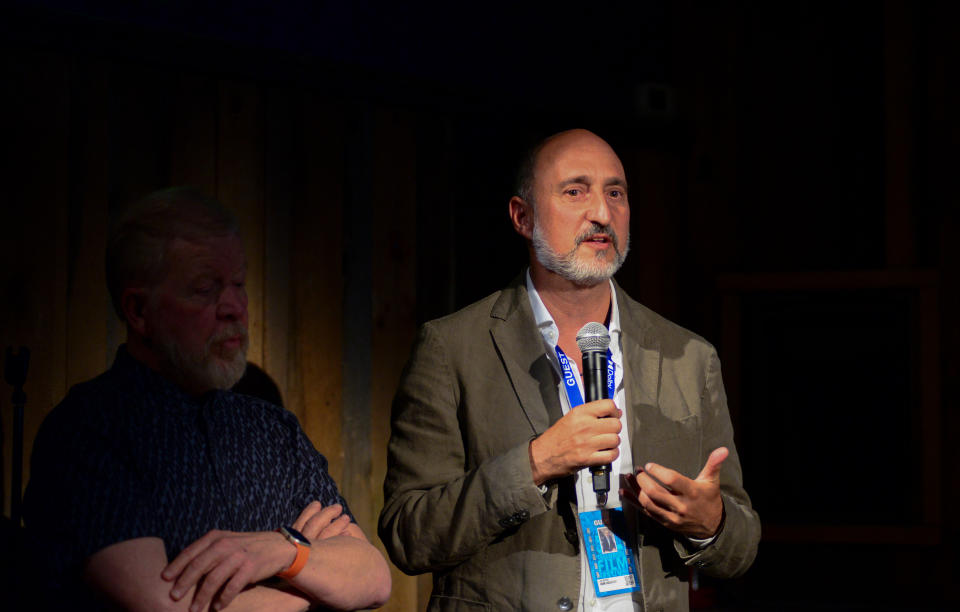
To examine the circumstances and meaning of Chau’s self-appointed mission, the filmmakers spoke with his friends, fellow evangelicals, ex-missionary Daniel Everett who spent decades among the Indigenous Pirahã people of Brazil’s Amazon rainforest, and historian Adam Goodheart, author of the soon-to-be-published book The Last Island: Discovery, Defiance, and the Most Elusive Tribe on Earth, who approached the North Sentinel Island 20 years before Chau, but wisely kept a safe distance from the shore.
“A few hundred yards away,” Goodheart specified as we met up with him, Everett, and Levi Davis – Chau’s close friend and fellow evangelical – in Telluride.
As we sat around a table, the three men engaged in the kind of spirited debate about Chau’s motivations that seems to have been repeated among many viewers of the film.
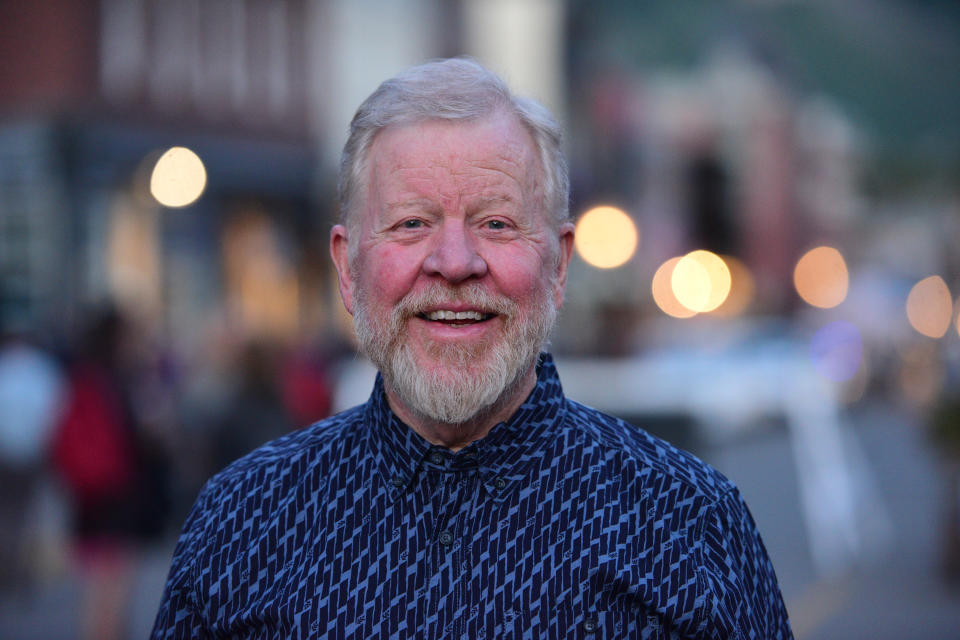
“Everybody wants to be the person who makes the first contact with the last uncontacted group. And that’s sort of an egocentric thing,” Everett noted. He went to Pirahã territory as a young man with his family, intent on translating the Bible into the natives’ language (he first had to learn it – a painstaking process). Eventually, he became skeptical of his mission and rejected the notion that he possessed superior knowledge to the Pirahã.
“I had this view that these people were going to Hell and they lived lives that could be so improved if they knew about Jesus,” Everett explained. “And I would go there and live with them and be the big white [savior] who would bring them from the darkness into the light. And when you stop and think about that, that’s an extremely negative assessment of those people, that they need our light, that they don’t already live in the light.”
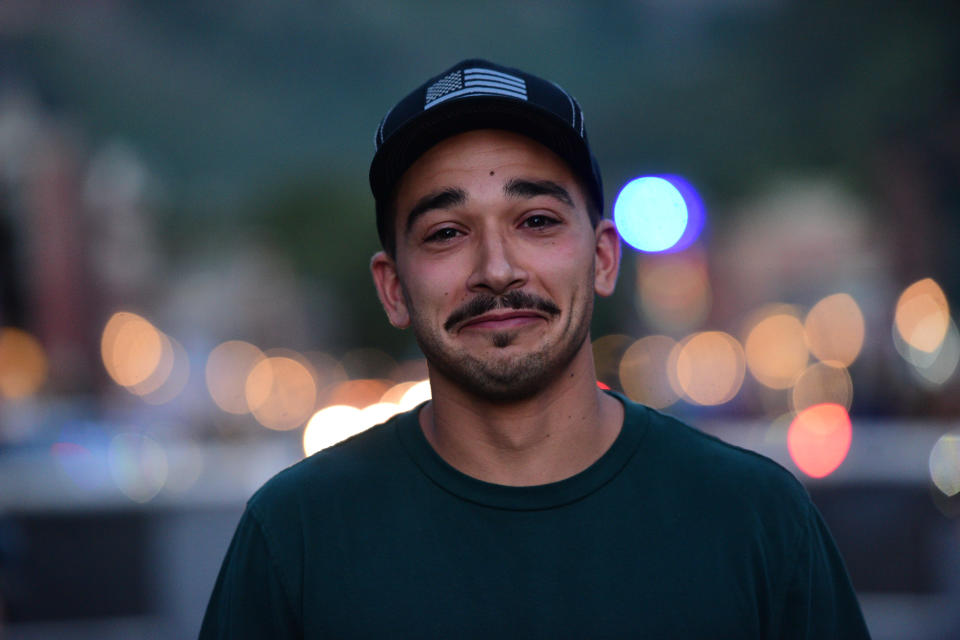
Chau left behind a diary in which he speculated the North Sentinel Island might represent “Satan’s last stronghold” on Earth, because the Indigenous inhabitants hadn’t been exposed to the Word of God. But Davis, his friend, said he believed Chau’s main priority wasn’t to evangelize per se, but to follow teachings laid out in the Book of Genesis, “when God gives Abraham the mandate to be a ‘blessing to the people.’ And so that is what He tells him to do. He didn’t say, ‘Go convert people’ or ‘Go bring fire and brimstone,’ or anything.”
Davis added, “I think that is kind of where the secular world gets tripped up and the Christian world gets tripped up because the Christian world gets caught up in, ‘What do we have to do to be a blessing?’ or… ‘We’ve got to save people from Hell’ and it just becomes fire insurance. They’re trying to sell fire insurance. And that’s not really the actual thing. That’s not what we’re actually doing. What we’re actually doing is trying to be a blessing to people… The job of the Christian is to be a blessing to the people and to love your neighbor.”
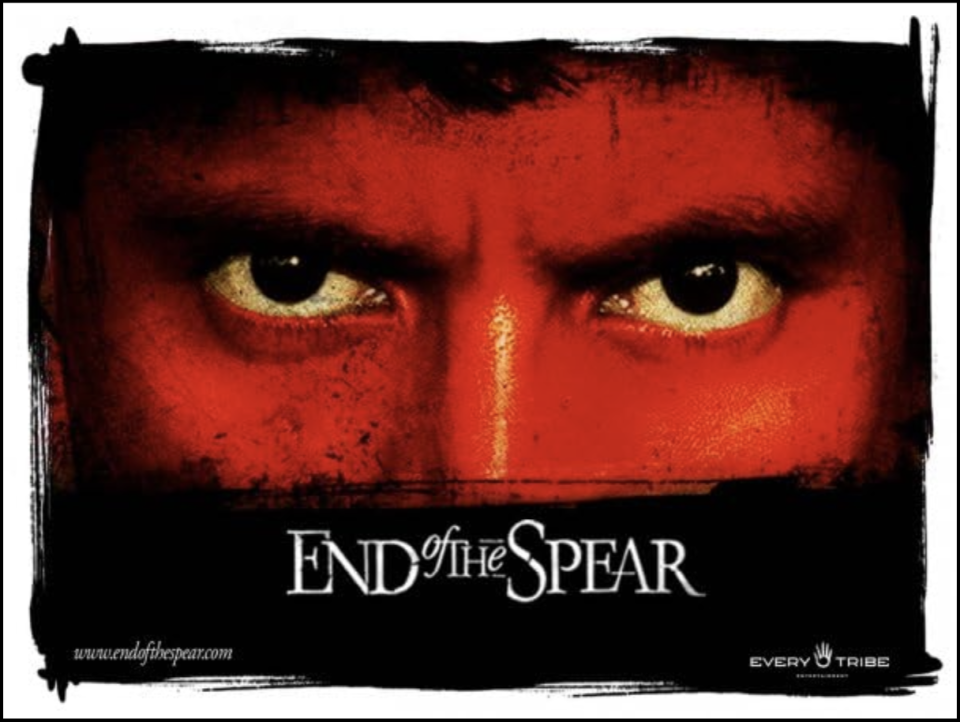
As seen in The Mission, there is evidence Chau was influenced not only by the Bible, but by adventure stories like Tintin, Robinson Crusoe, the Narnia novels by C.S. Lewis, and movies like End of the Spear, based on the true story of American Christian missionaries who attempted to evangelize the Waodani people of Ecuador’s tropical rainforest, only to be killed with spears.
This evocation of Chau’s mindset resonated for Goodheart, the scholar.
“I was going [to the North Sentinel Island] in my twenties and, like John Chau, I had these visions of sort of swashbuckling adventure,” Goodheart said. “And I loved some of the same books that entranced him when he was a boy… [The North Sentinel Island] is a place that in some ways draws out the best in people — I think it drew out the best in John, perhaps in that desire to serve, desire to be a blessing to the world. Maybe it drew out the best in me in a sense of trying to find important stories to tell and also trying to speak on behalf of protecting places like that. But maybe there’s also something that’s drawn people like me and John and others that has to do with that desire to be first and sort of to stake a claim, which I’m going to say has led some really, really ugly things in history.”
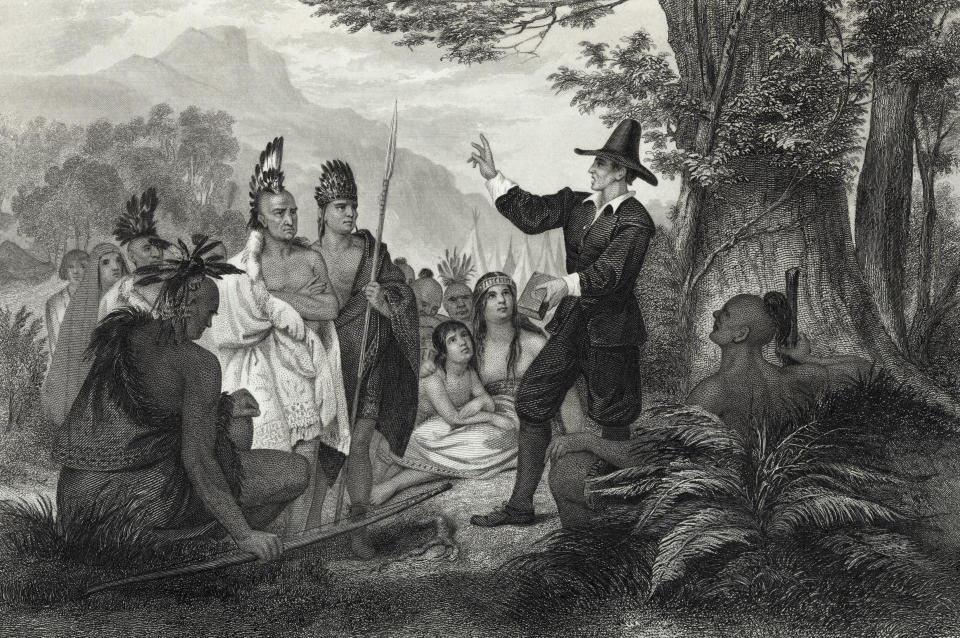
Goodheart said it’s essential to protect the North Sentinelese from intruders, lest they wind up like so many other Indigenous people sundered by outsiders.
“It’s the history of the world everywhere,” Everett noted, citing but one example: “The exploitation and destruction of societies in Australia by expatriate Brits who moved to Australia and got rid of the Aborigines. There’s something about knowing there’s a people that don’t have our values and don’t want to know us, that really intrigues a lot of people and makes them want those people to acknowledge our values. No contact with Indigenous people like this has ever been healthy. Not a single case that I know of. And it always leads to the degeneration of the society.”
The ethical dilemma posed by missionary expeditions underpins the documentary by McBaine and Moss. “There are a lot of missionaries out there and there’s a lot of evangelicals who don’t agree maybe with what John did, but there’s also a lot that do, so that concerns us,” McBaine told us leading up to the festival. “It’s a question we want to explore, and that’s part of what we got into in this movie.”
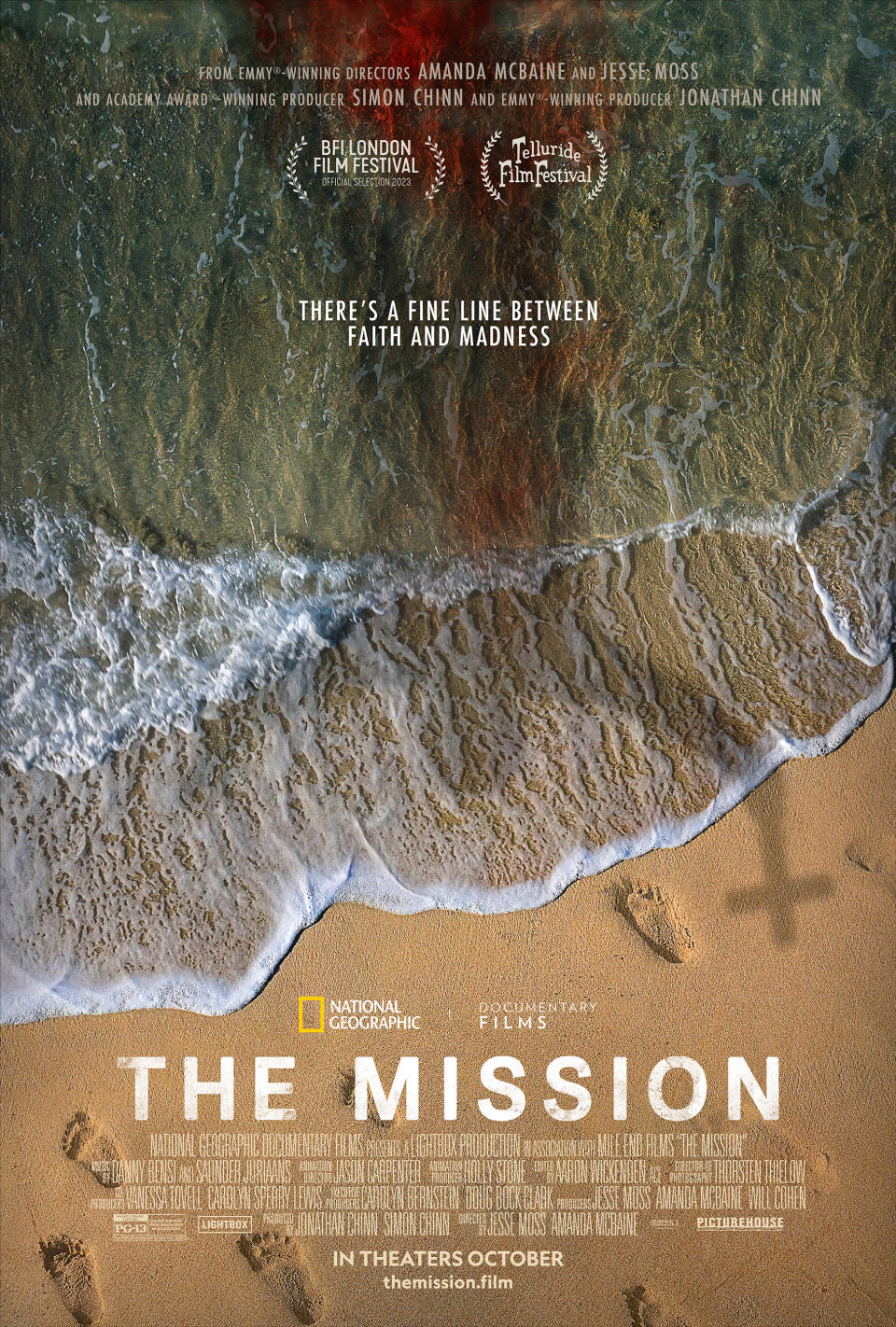
Goodheart said he’s been impressed by strong reaction to the film in Telluride. “I love that this is a place where not only do you get to participate in the premiere, but then you get to participate in these wonderful conversations. To see this movie just sparking so much interest and so many reflections on so many different topics from so many different people has been hugely exciting to be part of.”
“One woman came up to me and said after the film she had to walk around the block,” Everett reported. “It got her emotional. She could barely talk to me. She was trying not to cry. So it really did touch some people.”
Everett, the ex-missionary, observed, “I believe it was wrong for John to go there, I think that some of the stuff he was learning was just hocus pocus, but on the other hand, he believed it and he was living up to it… People shouldn’t come out of the film with a clear view of which was right and which was wrong, but think about it.”
Best of Deadline
TV Cancellations Photo Gallery: Series Ending In 2023 & Beyond
2023 Premiere Dates For New & Returning Series On Broadcast, Cable & Streaming
2023-24 Awards Season Calendar - Dates For Oscars, Emmys, Grammys, Tonys, Guilds & More
Sign up for Deadline's Newsletter. For the latest news, follow us on Facebook, Twitter, and Instagram.

